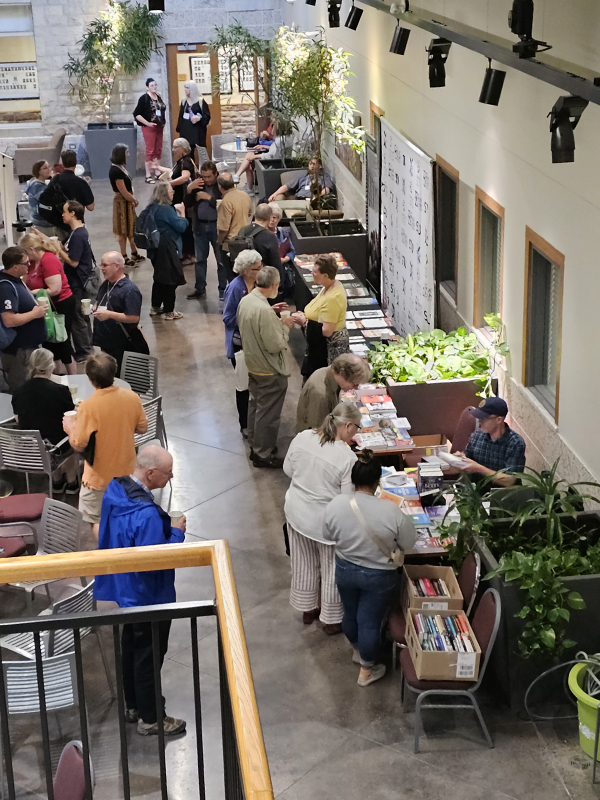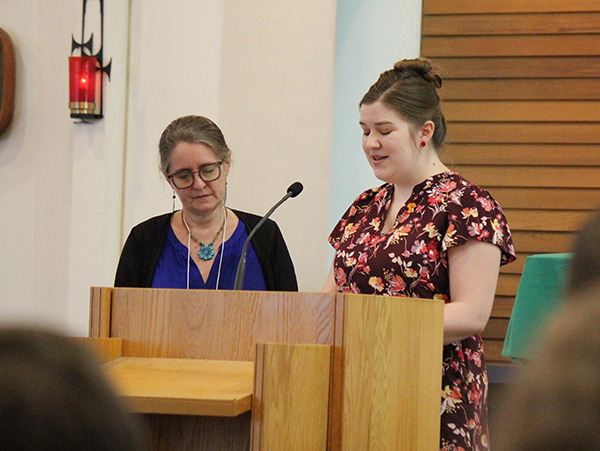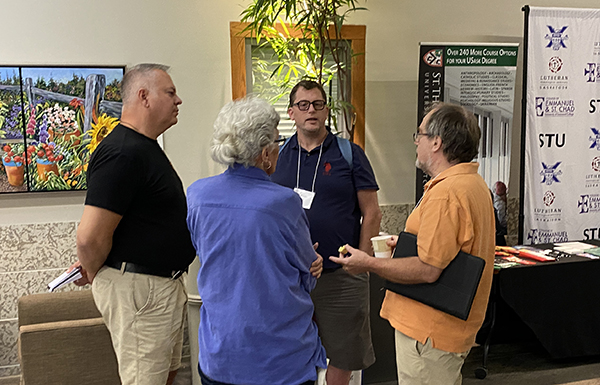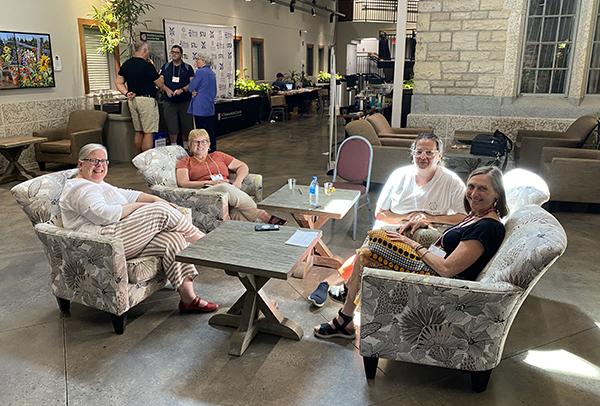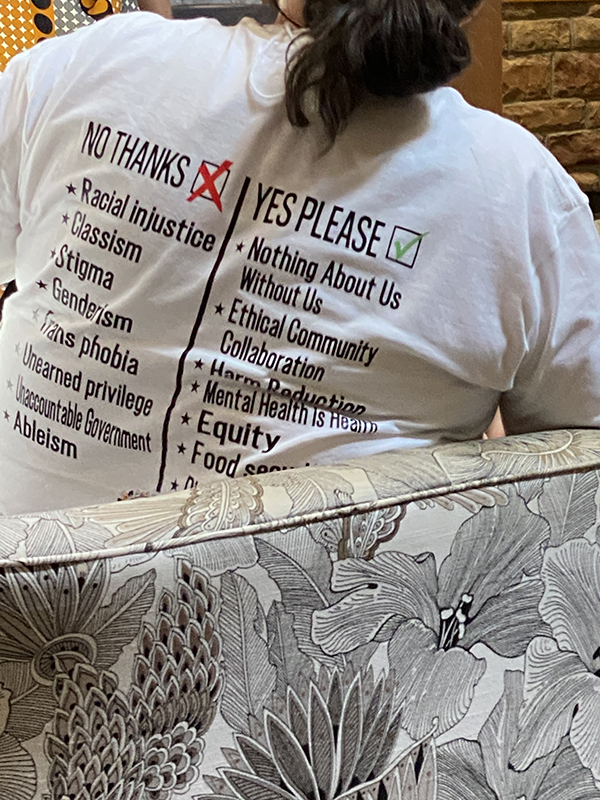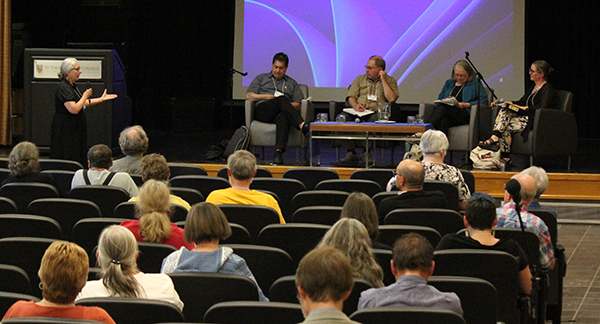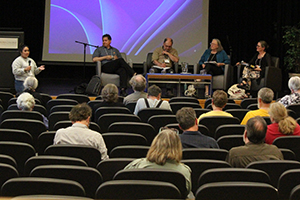
Conference attendees work toward decolonizing churches, moving closer to reconciliation
STM College, St. Andrew's College serve as hosts to workshops, panels for Saskatoon Theological Union event
By Paul SinkewiczSt. Thomas More College served as the co-host to an important conference striving to work on reconciliation recently.
The conference, titled Decolonizing Our Churches, Reweaving Our Lives, was put on by the Saskatoon Theological Union (STU), and sprung from the desire to have a conversation together about moving forward in a decolonizing mode towards truth, reconciliation, right relationships, justice, and healing, according to its organizers.
The STU is an association of three theological education colleges on the University of Saskatchewan campus, formed to facilitate a cooperative and ecumenical approach to the task of theological education.
They include the College of Emmanuel and St. Chad (Anglican), conference co-host St. Andrew’s College (United Church of Canada), and the Lutheran Theological Seminary (Evangelical Lutheran Church in Canada).
While remaining distinct and separate institutions, the three member colleges share their resources in significant ways. STM College, though not a member of the STU, has been a strong supporter and participant in its initiatives for many years.
“The Decolonizing Our Churches, Reweaving Our Lives conference was, for me, a profoundly moving experience,” said Gertrude Rompré, Director of Mission and Ministry at STM. “The conference brought together diverse voices and communities, and modelled the richness of encounter that happens when we simply listen, learn, and speak from the heart.”
The workshop, which ran June 20-22, included themed days.
Listening and Learning on Day 1 included a panel discussion titled Dreaming Our Shared Future, with panelists Dr. Michel Andraos, Dean, Faculty of Theology, St. Paul University, Ottawa, Dr. Christine Jamieson, Associate Professor, Theological Studies, Concordia University, Montréal, Dr. Néstor Medina, Associate Professor of Religious Ethics and Culture, Emmanuel College, Toronto School of Theology, and Rev. Dr. Ali Tote, Assistant to the Bishop, Saskatchewan Synod ELCIC.
It was followed by workshops on Decolonizing in Action, with Rev. Michele Rowe and Rev. Deb Anderson Pratt, Dr. Elaine Enns, author of Healing Haunted Histories, and Darlene Rose Okemaysim-Sicotte, Iskwekuk Ewichitochik (Women Walking Together).
The day ended with a story-telling evening with Cort Dogniez at St. Andrew’s College. Dogiez is a proud Métis man born and raised in Saskatoon, and a graduate of the Indian Teacher Education Program. He worked for Saskatoon Public Schools for 31 years as a teacher, administrator and as the Coordinator for First Nations, Inuit and Métis Education.
On Day 2, conference attendees had film and discussion sessions at St. Andrew’s College and then took part in local events for National Indigenous Peoples Day.
Day 3, themed Conversing and Bearing Witness included workshops on Decolonizing in Action with Amanda Dodge and Julie Graham, KAIROS Prairies North Decolonizing Working Group, Erica Violet Lee, poet, essayist, political theorist, and urban nêhiyaw scholar from inner-city Saskatoon, and Lynn Caldwell, Darlene Rose Okemaysim-Sicotte and Don Schweitzer, contributors to the book Honouring the Declaration: Church Commitments to Reconciliation and the UN Declaration on the Rights of Indigenous Peoples.
Rompré said the conference attendees did important work in the work of reconciliation.
“Decolonization is a big word that requires a lot of unpacking. In reality, the conference put flesh on the concept, bringing forth stories of how we can, as individuals and as churches, build right relationships with each other and the lands we inhabit.”
